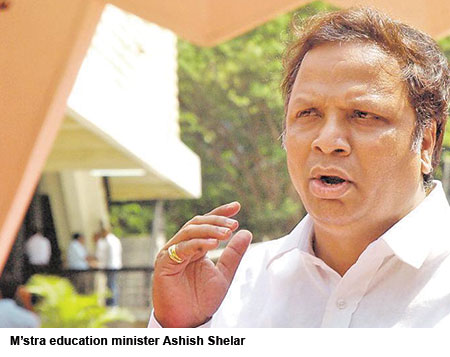 The decision taken by Maharashtra’s BJP-Shiv Sena-led government to scrap in-school assessment for languages and social science subjects in the class X secondary school certificate (SSC) board exams held in March, has delayed first year junior college (FYJC) admissions. Moreover, there is a 12.31 percent decrease in the number of students who passed this school-leaving exam.
The decision taken by Maharashtra’s BJP-Shiv Sena-led government to scrap in-school assessment for languages and social science subjects in the class X secondary school certificate (SSC) board exams held in March, has delayed first year junior college (FYJC) admissions. Moreover, there is a 12.31 percent decrease in the number of students who passed this school-leaving exam.
In a stop-gap attempt to compensate SSC students, the government has asked top-ranked colleges in Mumbai, Pune and Nagpur to increase their FYJC intake of students in the new academic year (2019-2020). It has also directed students of schools affiliated with the Council for the Indian School Certificate Examinations (CISCE) board in the state to re-calculate the generous grades/marks awarded by them.
In 2017, suspecting state board affiliated schools of inflating internal assessment marks, the Maharashtra State Board of Secondary and Higher Secondary Education (MSBSHSE) scrapped internal assessments (weightage of 20 percent) comprising oral communication capability and project assignments in languages and social sciences for the academic year 2018-19. Instead, SSC students had to write 100 marks papers in language and social science subjects in the board exams held in March. However, schools affiliated with the Central Board of Secondary Education (CBSE) and CISCE boards continued to conduct internal exams.
Predictably, following abolition of internal exams by MSBSHSE students who wrote SSC performed poorly compared to their peers writing CBSE and CISCE exams. With the overall SSC pass percentage falling by 12.31 percent from 89.41 in 2017-18 to 77.04 percent this year, there were widespread protests from parents of children who wrote the SSC exam that CBSE and CISCE school-leavers would have an edge over their children in FYJC admissions into the state’s top-ranked arts, science and commerce colleges.
On June 6, a day after SSC results were declared, Maharashtra’s higher education minister, Vinod Tawde defended MSBSHSE’s decision to abolish internals saying inflated internal assessment scores (due to teachers awarding liberal marks to students they knew personally) gave SSC students a false sense of achievement. However, as panic about poor SSC results spread, the minister succumbed to public pressure and held several meetings discussing ways and means to level the playing field for SSC students. One among the several options was to coerce CISCE and CBSE schools to submit fresh mark sheets sans students’ internal marks. In a letter dated June 16, the state’s department of school education threatened to bar CISCE students from participation in the college admission process in the first two rounds if the board failed to share data about internal marking.
Unsurprisingly, the letter provoked a sharp response from Gerry Arathoon, secretary-general and chief executive of CISCE, who wrote: “The purported move is not only arbitrary but also unconstitutional and is liable to be withdrawn forthwith. It appears that this decision has been taken at the eleventh hour after the SSC exams results were declared.”
Evidently, Tawde’s decision to scrap internal assessments in state board schools cost him his job. On June 16, when chief minister Devendra Fadnavis expanded his cabinet, Tawde was replaced by Ashish Shelar, formerly the BJP’s Mumbai unit chief. In a bid to defuse the crisis, Shelar has proposed that 50 colleges in Mumbai, Pune and Nagpur should increase their FYJC admissions quota in all streams by 5-10 percent. Moreover, the education department has also directed all ICSE and CBSE class X examinee students to resubmit their FYJC admission applications excluding marks from ‘Group C’ high scoring subjects such as environmental studies and computer applications. Hitherto, ICSE students have been submitting their ‘best of five’ out of the six subjects average scores as mandated by a Supreme Court order of 2010.
Inevitably, the Maharashtra government’s latest diktat has resulted in depressing the average score of the state’s estimated 8,500 students who wrote CISCE’s class X ICSE exam in March. In turn this has aroused the wrath of their parents who fear their children won’t be admitted into FYJC classes of top-ranked colleges. Meanwhile college principals apprehend that the academic calendar which has already been delayed, could suffer further if parents of ICSE students challenge the state government’s hasty patchwork solutions of this self-created crisis in court.
With elections to the state legislative assembly scheduled for October, there was a certain inevitability about the incumbent BJP-Shiv Sena government pulling out all stops to ensure FYJC admissions parity for state board schools. For the simple reasons that schools affiliated with MSBSHSE (21,000) by far outnumber CBSE (941) and CISCE (208) schools statewide. But if its patchwork solutions to a self-made crisis are struck down by the judiciary, the BJP-Shiv Sena coalition could suffer a backlash.
Dipta Joshi (Mumbai)




























